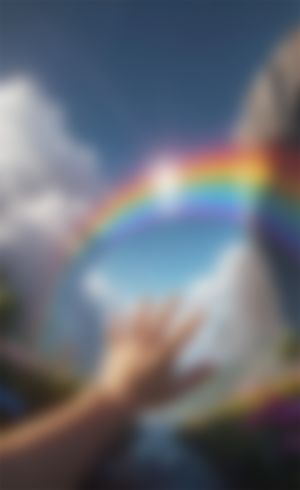Free Will Exists! Does it..?
People insisting on “free will” are selling you something. Hear me out…
Free-will advocates either want to flatter your decision-making skills before they lead you on to buy what they sell (and make you think it was your “free” decision), or they insinuate that their relative success (compared to your failures) is 100% a product of their own hard work, without crediting external parameters. These are the toxic motivator online success gurus with a useless product or a cult-like sense of community to sell you.
Basically, they brag by claiming full ownership of their successes, without acknowledging or showing gratitude for random opportunities that life gave them (especially the opportunity of at least not having misfortune). They deny any and all fortune, or lack of misfortune that they had in life. It’s an insult to you, because their implied message is that you chose to be miserable by comparison.
But if free will doesn’t exist, how do we explain human awareness, creativity, morality, inspiration, aspiration, empathy, ambition, and so on? How can we deny free will?
Excellent question…
A free will conversation
Here’s a conversation (not word for word) that I once had with a guy who presented himself as “successful”, when I was unimpressed:
“Everything is free will. When I discovered this, I became successful.”
Not everything is free will.
“This is loser talk. Of course everything is free will. You’re just making excuses for yourself.”
Can you choose to be born blind?
“No, but you can choose what to do with that.”
How can you choose?
“What do you mean? You use your free will to choose.”
Yes, but how does a person sense information, interpret it, analyse it through specific mental algorithms, process it through neural pathways or brain architecture, and then express his decisions with whatever mental and physical capabilities he has within the confines of his environment? It must mean that the parameters that define a person are beyond free will.
“You are just a hedonist. You need to believe there is no free will because you want to be excused for your immoralities and your failures.”
Not at all. I am not giving excuses, but rather, explanations. When you go into sports pub in London, and wear a T-shirt of a foreign team, you’re likely to get punched in the face. I don’t excuse violence against you, but I explain why it happened so that we understand the dynamics of the situation, regardless of free will. Yes, criminals should face consequences for their crimes, just like we do away with pests and insects who annoy us, even though they are just acting according to their instinctive programming. Accusing me of making excuses for crime and failure is a straw man.
“[Incoherent ad hominems] Then how do you explain human creativity, morality, inspiration, compassion and motivation?”
How do you explain an AI image generator? It takes random impulses, external training, fundamental rules given to it by its nature, and a lot of randomness. It has no free will, but this doesn’t make an AI-generated image any less impactful. It just is.
“You’re trying to rob free will from me and discredit me for my accomplishments.”
You never had free will to begin with. It just suits you to believe that everything you think you made was 100% attributed to you, just like a loser wants to believe that 100% of his failures are attributed to things outside of his control. The fact remains: we are the product of randomness. We are born in a time and place and genetics that fundamentally define us. We are born to parents whom we never chose, and their parenting, as well as random experiences in our developmental window, determine our values, principles, biases, thought patterns, even IQ. Random trauma, opportunity, abuse, fortune, culture, and socio-political shifts scar our entire existence. The religions we are exposed to, our entourage, randomly acquired diseases, and randomly discovered information to which we happened to be exposed get to shape who we are. And who we are is a our mental architecture within a biological body, both with capabilities and limitations that nature defined, not us. Sure we have the ability to shape who we are to a point, just like machine-learning algorithms can change, improve and expand software. But that software is still operating withing its fundamental parameters. It cannot change those parameters, and if it could, it would still be the result of operating within them. We are slaves to our nature. We cannot change what we are. We delude ourselves that we are free just like the socialist/fascist pleb of a 1984 dystopia convinces himself that slavery is freedom, and war is peace.
“I had the same upbringing as my brother, and I turned out better than him. How do you explain that?
You prove my point. You just happened to be, by default, better than your brother. The fact that you overtly claim that ‘you were better’ proves that he was fundamentally inferior to you, without his choosing. He lacked the will, resolve, foresight, intelligence or motivation to achieve what you did, even though you had common (but not identical) life experiences. He had inferior genetics and/or life experiences. Even if you were twins and had the same genetics and almost identical upbringing, the slightest experience can change you fundamentally. For example, imagine the butterfly-effect consequences of a needy aunt proclaiming that one twin child is the cute one. This shapes their entire identity and sense of self.
“So we are just NPCs, hopeless automata with no free will?”
No. I am saying that we are products of nature that have at least some awareness that are products of nature. The more you are aware that you have no free will, the closer to free will you get. Our only measure of free will is our awareness of our inability to reach it, just like a rainbow.

Added context
The religious claim that “God gave us free will” is not convincing to me. Nowhere in mainstream religions does the concept of “free will” clearly appear. It is only interpreted as such, because mainstream religions appear to suggest that our existence is more-or-less an unannounced school test that nobody prepared for. But if free will was the point of this world, then why are we endowed with instincts and character-defining sensitivity to trauma and fortune? How free are we when our own existence is the result of non-free will?
And if you think about it, if we had pure free will, then we’d be nothing. How can an entity exist without any determining factors or defining fundamental rules? What are we without the things that define us, and therefore, deny us freedom beyond them? To be able to think, let alone be inspired, requires definition, and our definition is unfree. Free will is chaos and non-existence. Free will is nothingness. The higher potential of humanity (compassion, inspiration, morality, etc.) are products of our nature, which is unfree will.
The upside
The notion that we don’t quite have free will is not a grim admission but a positive realisation. It doesn’t mean we are not responsible for our actions; more so, it means we are responsible for a nature that we didn’t get to choose. It credits us with even more moral responsibility, not self-blame for things that were outside our control. When we understand what is beyond our control, then perhaps we can focus on what is within it. Maybe the awareness of unfree will is the most freedom we can achieve. If anything, the delusion of free will is what holds us back, because when we imagine that the prison of our nature is freedom, then we can never venture outside of it.
If you liked this article, kindly share, comment, like and subscribe for free.
